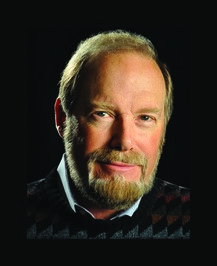– Aurelio Porfiri
Today we live many narratives that are imposed by powerful media outlets. Maybe at the end they are not different narratives but just the many faces of a single narrative, the one that has decided that the new god we have to worship is man, the man at the center of the universe. Of course this is completely opposed to everything the Catholic Church has taught in her history. But today the battle is quite subtle. And there are forces, also among those who should be considered Catholics, that push the debate in the direction of the narrative we were mentioning at the beginning, the narrative where man is god and there is no other. In the name of this narrative are justified abortion, euthanasia, policies to control overpopulation. In his audience on October 10, 2018, Pope Francis has said clearly, talking about the fifth commandment: “One could say that all the evil carried out in the world can be summed up in this: contempt for life.
Life is assailed by war, by organizations that exploit people — we read in newspapers or see in newscasts many facts — by speculations on creation and by the throwaway culture and by every system that subjugates human existence to calculated opportunities, while a scandalous number of people live in a state unworthy of mankind. This is having contempt for life, that is, in some way, killing. A contradictory approach even permits the termination of human life in the maternal womb, in the name of safeguarding other rights. But how can an action that ends an innocent and defenceless life in its blossoming stage be therapeutic, civilized or simply human? I ask you: is it right to ‘do away with’ a human life in order to solve a problem? Is it right to hire a hit man in order to solve a problem? One cannot. It is not right to ‘do away with’ a human being, however small, in order to solve a problem. It is like hiring a hit man to solve a problem. Where does all this come from? Violence and the rejection of life; where do they actually come from? From fear. Indeed, welcoming others is a challenge to individualism. Let us think, for example, about when it is discovered that a new life has a disability, even a serious one. In these tragic cases, parents need true closeness, true solidarity to face the reality and overcome the understandable fears. However, they often receive hasty advice to interrupt the pregnancy, which is an expression: ‘interrupting the pregnancy’ means ‘doing away with someone’, directly.”
A scholar of all these issues, from a Catholic point of view, is Steven Mosher. He is an American social scientist, very knowledgeable also about the Chinese situation. Indeed he studied and is fluent in Mandarin and Cantonese. He is the president of the Population Research Institute and author of several books and articles in The Wall Street Journal, Reader’s Digest, The New Republic, The Washington Post and many others. Before starting the interview I had with him a while ago, let me quote a portion of a press release from the Population Research Institute that deals with the issue of birth policies in China and their evolution. It was released on August 28, 2018: “Beijing is quickly moving beyond a voluntary two-child policy to one where every couple is required to have two children, says PRI President Steven Mosher. ‘The two-child policy is coming to be referred to as a “comprehensive two child policy” or a “full two children policy,” (“全面两孩”政策 / “全面二孩”政策),’ says Mosher. ‘The implication is that they should be encouraged to fill their two-child quota.’ The authorities in Yichang, a city of four million people, have called on all Communist Party members to ‘take the lead in responding to the Party Central Committee’s call’ to have a second child. Younger Party members were advised to lead by example (the Chinese phrase used literally means ‘doing it starts with me’), while older comrades were told to ‘educate and supervise their children’ with the obvious intent of encouraging grandchildren. Party members of all ages were urged to ‘take various measures to mobilize the masses to actively achieve a “full two children policy.” In recent months, the state-controlled media have been publishing ‘opinion pieces’ about the need to reverse China’s low birth rate.”
Professor Mosher, can you please give some background about yourself?
In 1979, I became the first American social scientist allowed to do research in mainland China. I had earlier studied Mandarin and Cantonese at the Chinese University of Hong Kong and Stanford University, and so was able to talk freely with the residents of Shunde county, where I lived for a year. I was invited to do research by Deng Xiaoping himself, and because of this I had open access to local government officials and their programs. When the one-child policy began, I became an eyewitness to women being forced to have abortions and sterilizations to control China’s population growth. I was a pro-choice atheist at the time, but witnessing late-term abortions led me to reconsider his convictions. I eventually became a pro-life Roman Catholic. I have appeared numerous times before the U.S. Congress, the British Parliament, and other legislative bodies as an expert in world population, China, and human rights.
What is the source of your interest in China?
I have always been fascinated by Oriental languages and cultures. Living in Japan in the mid-70s, I came to understand that the source of Eastern civilization was China. I decided to go to the source, and enrolled in the two-year Chinese Language Program offered by the Chinese University of Hong Kong. I dedicated myself to learning both the language of the classroom–Mandarin–and the language of the streets–Cantonese, and finished the course of studies more or less fluent in both. I developed a lasting love for the Chinese people and their culture during my time there.
What is the Population Research Institute?
The Population Research Institute was founded in 1989 by Father Paul Marx, OSB, PhD, who believed that people are the world’s greatest resource, the one resource you cannot do without. I worked closely with Father until his death in 2010, exposing what we considered to be the “myth of overpopulation.” Many human rights abuses have been committed in population control programs. We have documented forced sterilization, forced abortions, and forced contraception in over forty countries. Our growing, global network of pro-life groups spans over 30 countries at present.
What are the current projects of the PRI?
There are still many countries in which governments are trying to forced down the birthrates. But there are even more in which governments are trying to increase the birthrate. Current science shows that there are too few people in many countries, not too many. We offer advice to governments on how to raise the birth rate. We are still battling the overpopulation myth, which has led to so many abuses around the world, especially among women. Among these abuses are forced sterilizations in countries like India, where the governments of various states have set up sterilization camps and continue to perform tubal ligations on women under a quota system. Another abuse that we are attempting to call attention to is sex-selective abortion. Sex-selective abortion is found in countries where there is both a preference for sons and harsh population control measures in place. Over 100 million girls are missing in Asia as a result of sex-selection abortion.
Is it true you were the first American researcher to be able to make anthropological research in rural China?
By 1979, China had been closed to American researchers for 30 years. Many of my colleagues in the China field were not fluent in the language. For my part, aside from having lived and studied in Hong Kong, I had also been carrying out anthropological research in Taiwan and was teaching at the University of California at Berkeley. I was selected by the administration of President Carter to be the first American social scientist to go to China. The Chinese Ministry of Foreign Affairs at first turned down my research proposal, but Deng Xiaoping later gave his permission after a personal appeal from the American president. I arrived in China two months after the U.S. and China normalized diplomatic relations.
You have studied the consequences of the so called “one child policy” in China, now no more officially in use. Can you tell us your findings?
It wasn’t so long ago that Chinese officials were bragging about the success of their population control program. When the Chinese Minister of Health, Gao Qiang, visited the U.S. in 2011, he proudly told a group of U.S. Congressmen: “We have eliminated 400 million people from the population. We have eliminated more people than the entire population of the United States.” But faced with labor shortages and an aging population, Beijing has now moved to a two-child policy. And the suggestion is that China is poised to abandon birth restrictions. Perhaps as early as the end of the year, Beijing will announce that Chinese women are free to have as many children as they wish. That will be a welcome change.


 Follow
Follow



The free market capitalist system is the best family planning program… The wealthier a nation becomes the slower its population grows…